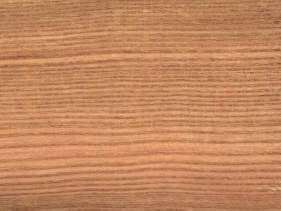 
Kentucky coffeetree (Gymno cladus dioicus)
Family:
Common names: Chicot, Coffe nut, Coffetree, Dead tree, Kentucky coffeetree, Kentucky mahogany, Knicker tree, Mahogany bean, Stump tree
Distributed in: Canada, United States (North America)
Distribution overview: The Kentucky coffee tree grows in moist woods, creek banks, and flood plains. It is mainly found in the Midwest from western Ohio to eastern Kansas and Oklahoma, southern Michigan to northern Alabama and Tennessee. The tree was much planted around farm houses and may now be maintained as ornamentals around newer buildings. Often found in floodplain forests, but may appear in other habitats.
Common uses: Bedroom suites, Building construction, Cabinetmaking, Chairs, Chests, Concealed parts (Furniture), Construction, Crossties, Desks, Dining-room furniture, Dowell pins, Dowells, Drawer sides, Fine furniture, Floor lamps, Foundation posts, Fuelwood, Furniture , Furniture components, Furniture squares or stock, Hatracks, Kitchen cabinets, Living-room suites, Office furniture, Posts, Radio - stereo - TV cabinets, Railroad ties, Rough construction, Rustic furniture, Stakes, Stools, Tables , Utility furniture, Wardrobes
Product sources: The commercial importance of Kentucky coffeetree is diminished by its sparse distribution, although it is described as a handsome wood that takes a high polish and finishes to a high luster. With the exception of its growth areas, the wood is very scarce, and is usually marketed in a mixture with other hardwoods. It is priced in the medium range when available.
Environment profile: Vulnerable in parts of its natural habitat
Tree size: Trunk diameter is 100-150 cm
Colors: the heart isPurple, Redand the sapwoodWhite, Yellow.The grain isStraight, the textureResinous and oilyand the lusterMedium
Natural durability: Resistant to termites, Susceptible to insect attack
Odor: No specific smell or taste
Kiln Drying Rate: Naturally dries slowly
Drying Defects: Resin Exudation, Splitting
Ease of Drying: Slowly
Blunting Effect: Moderate
Boring: Fairly easy to very easy
Carving: Fairly Easy to Very Easy
Cutting Resistance: Fairly Difficult to Very Difficult to saw
Gluing: Surface Preparation
Mortising: Fairly Easy to Very Easy
Moulding: Poor to Very Poor
Movement in Service: Poor to Very Poor
Nailing: Tends to split during nailing, Very Good to Excellent
Planing: Fairly Easy to Very Easy
Resistance to Impregnation: Resistant sapwood
Response to hand tools: Responds Readily
Routing recessing: Fairly Easy to Very Easy
Sanding: Fairly Easy to Very Easy
Veneering qualities: Veneers easily, Veneers moderately easy
Steam bending: Fairly Easy to Very Easy
Screwing: Fairly Easy to Very Easy, Holds screws well; Turning: Fairly Easy to Very Easy
Painting: Good; Polishing: Very Good to Excellent; Staining: Very Good to Excellent;
- Numerical data Metric
- Numerical data English
- Strength properties
- References
 |
 |
 |
 |
| Item |
Green |
Dry |
Metric |
| Specific Gravity |
|
|
|
| Density |
|
|
kg/m3 |
| Bending Strength |
|
799 |
kg/cm2 |
| Crushing Strength |
|
|
kg/cm2 |
| Hardness |
|
|
kg |
| Impact Strength |
|
|
cm |
| Shearing Strength |
|
|
kg/cm2 |
| Stiffness |
|
|
1000 kg/cm2 |
| Tangential Shrinkage |
|
|
% |
| Radial Shrinkage |
|
|
% |
| Weight |
|
|
kg/m3 |
| Maximum Load |
|
|
cm-kg/cm3 |
| Toughness |
|
|
cm-kg |
| Static Bending |
|
|
kg/cm2 |
|
 |  |  |  | | Item | Green | Dry | English | | Bending Strength | | 11368 | psi | | Specific Gravity | 0.46 | 0.4 | | |
Boone, R.S., C.J. Kozlik, P.J. Bois, E.M. Wengert. 1988. Dry Kiln Schedules for Commercial Hardwoods - Temperate and Tropical. USDA, Forest Service, General Technical Report FPL-GTR-57, Forest Products Laboratory, Madison, Wisconsin.Kaiser, J. 1990. Wood of the Month Annual - Coffeetree:The Tree with the Coffee Taste.Supplement to Wood and Wood Products, September, 1990, Page 14A.Kline, M. 1983. Gymnocladus dioicus - Kentucky coffeetree. In A Guide to Useful Woods of the World. Flynn Jr., J.H., Editor. King Philip Publishing Co., Portland, Maine. Page 185.Little, E.L.1980.The Audubon Society Field Guide to North American Trees - Eastern Region.Published by Arthur A. Knopf, New York.Panshin, A.J. and C. deZeeuw. Textbook of Wood Technology. McGraw-Hill Series in Forest Resources. McGraw-Hill Book Company, New York.USDA. 1987. Wood Handbook - Wood as an Engineering Material, United States Department of Agriculture, Forest Service, Agriculture Handbook No. 72, Forest Products Laboratory, Madison, Wisconsin.USDA. 1988. Dry Kiln Operators Manual, Preliminary Copy. Forest Service, Forest Products Laboratory, Madison, Wisconsin.
|









